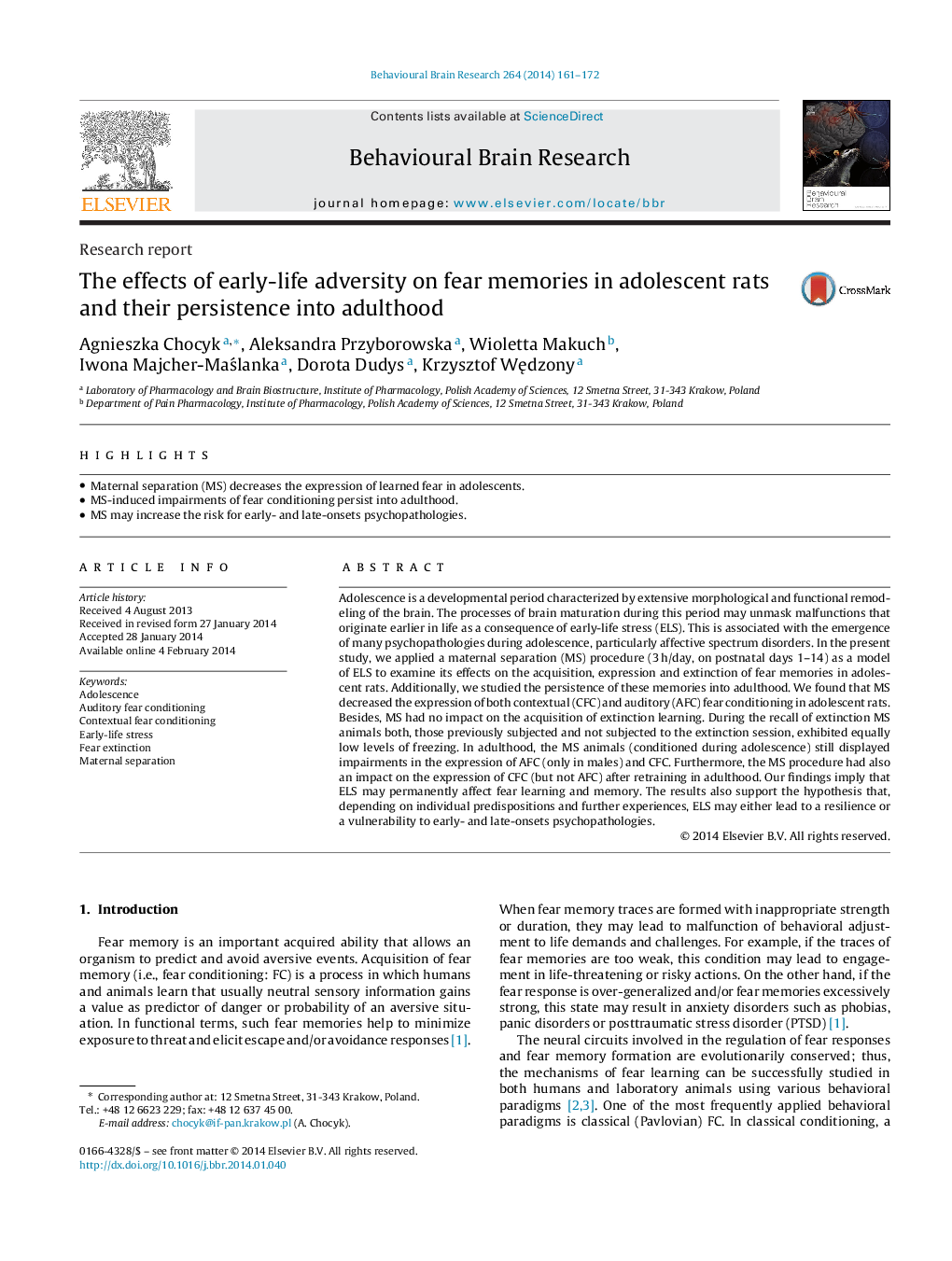| Article ID | Journal | Published Year | Pages | File Type |
|---|---|---|---|---|
| 6258265 | Behavioural Brain Research | 2014 | 12 Pages |
â¢Maternal separation (MS) decreases the expression of learned fear in adolescents.â¢MS-induced impairments of fear conditioning persist into adulthood.â¢MS may increase the risk for early- and late-onsets psychopathologies.
Adolescence is a developmental period characterized by extensive morphological and functional remodeling of the brain. The processes of brain maturation during this period may unmask malfunctions that originate earlier in life as a consequence of early-life stress (ELS). This is associated with the emergence of many psychopathologies during adolescence, particularly affective spectrum disorders. In the present study, we applied a maternal separation (MS) procedure (3Â h/day, on postnatal days 1-14) as a model of ELS to examine its effects on the acquisition, expression and extinction of fear memories in adolescent rats. Additionally, we studied the persistence of these memories into adulthood. We found that MS decreased the expression of both contextual (CFC) and auditory (AFC) fear conditioning in adolescent rats. Besides, MS had no impact on the acquisition of extinction learning. During the recall of extinction MS animals both, those previously subjected and not subjected to the extinction session, exhibited equally low levels of freezing. In adulthood, the MS animals (conditioned during adolescence) still displayed impairments in the expression of AFC (only in males) and CFC. Furthermore, the MS procedure had also an impact on the expression of CFC (but not AFC) after retraining in adulthood. Our findings imply that ELS may permanently affect fear learning and memory. The results also support the hypothesis that, depending on individual predispositions and further experiences, ELS may either lead to a resilience or a vulnerability to early- and late-onsets psychopathologies.
